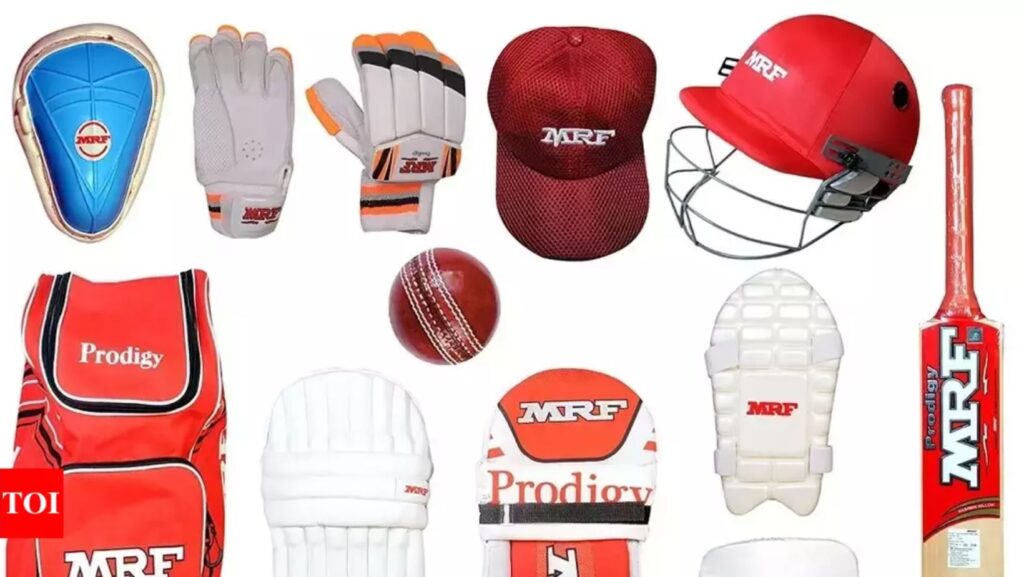Cricket, often celebrated as the “sport of gentlemen,” carries a profound legacy of traditions and history. Whether you’re a seasoned pro on the cricket field or someone who enjoys a casual game in the local park, having the right cricket gear is absolutely crucial. So, what components make up a complete cricket kit? Let’s explore the essential elements that come together to create a cricket kit:
Cricket Bat:
The cricket bat holds the mantle of being the most pivotal item in a batsman’s arsenal. Typically featuring a flat blade affixed to a handle, these bats come in a myriad of shapes and sizes, each tailored to cater to distinct playing styles and personal preferences. Selecting a bat that feels comfortable and aligns with your batting technique is paramount.
Cricket Ball:
The cricket ball is a formidable, leather-clad orb adorned with a pronounced seam. Different formats of the game necessitate the use of either red or white cricket balls. Red balls are conventionally reserved for Test cricket and certain extended formats, whereas white balls make appearances in One Day Internationals (ODIs) and T20 matches.
Batting Pads:
Also known as leg guards, batting pads assume the crucial role of safeguarding a batsman’s legs against blistering deliveries. Typically comprising foam padding ensconced within a fabric casing, these pads are securely fastened to the legs through the use of straps.
Batting Gloves:
Batting gloves provide grip on the bat handle and protect the hands from injury. They are typically made of leather or synthetic materials and have padded areas to shield the fingers and palms.
Read more.. Farewell to a Cricketing Legend: Exploring Dinesh Karthik’s Retirement Decision
1.Helmet: A cricket helmet is essential for batsmen and wicketkeepers. It offers protection to the head and face from fast deliveries. Modern helmets also include a grille to protect the face while maintaining visibility.
2.Thigh Guard and Abdominal Guard: These protective guards provide additional protection to the batsman’s thighs and abdomen. They are worn underneath the clothing.
3.Cricket Shoes: Cricket shoes have specialized spikes on the soles to provide grip on the pitch. Batsmen, bowlers, and fielders all wear different types of cricket shoes designed for their specific roles.
4.Wicketkeeping Gloves: Wicketkeepers wear gloves similar to batting gloves but with additional padding and webbing to aid in catching the ball.
5.Wicketkeeping Pads: Wicketkeeping pads, like batting pads, protect the legs but are designed with a more curved shape to allow wicketkeepers to crouch comfortably.
6.Cricket Clothing: Players wear specialized cricket clothing that includes a jersey, trousers, and sometimes a sweater or jacket. The clothing is typically made of breathable and moisture-wicking materials to keep players comfortable during matches.
Read more.. Embracing Cricket Mania: The Impact of Odisha T20 in India
7.Protective Box (Abdominal Guard): Also known as a “box” or “cup,” this protective equipment is essential for male players to protect the groin area from injury.
8.Cricket Bag: A spacious cricket bag is used to carry and transport all the cricket equipment. It usually has multiple compartments to keep items organized.
9.Accessories: Miscellaneous accessories may include grip applicators, extra bat grips, sunglasses, sunblock, caps, and a water bottle.
10.Stumps and Bails: If you’re playing a formal match, you’ll need stumps (three wooden posts) and bails (two small wooden pieces placed on top of the stumps) for setting up the wickets.
11.Umpire Equipment: If you’re officiating a game, umpire equipment includes a hat, white coat, counter, and occasionally a protective box.
Read more.. Gaming Innovation: From Computer generated Reality to eSports and Then Some
